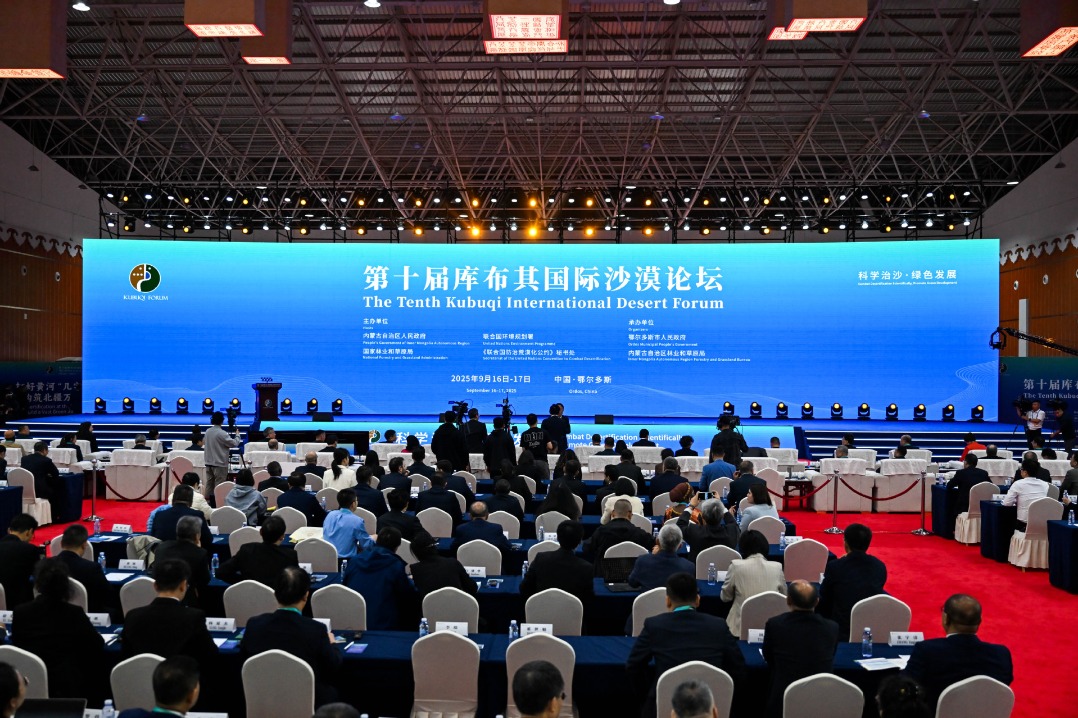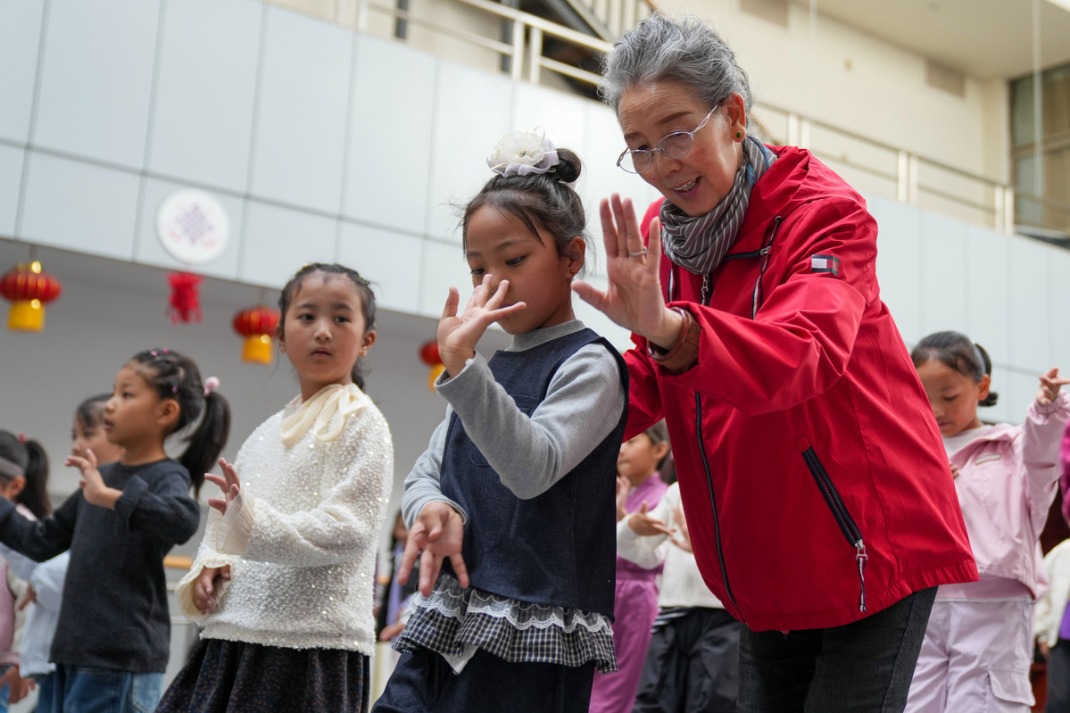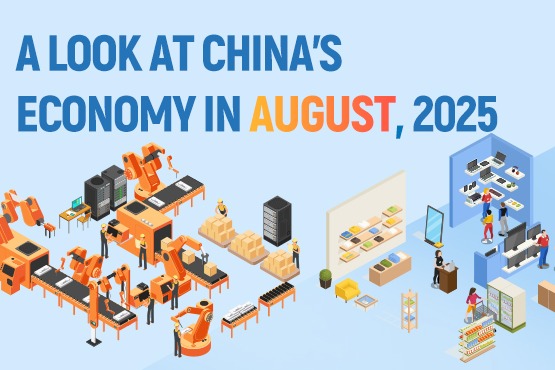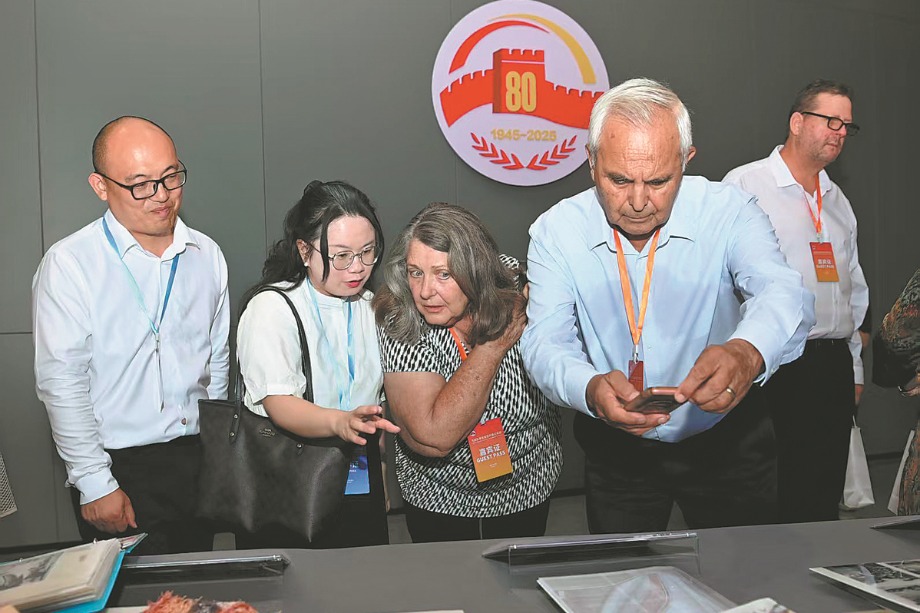Deans share insights on role of business education in future
Collaborative EMBA program serves as a bridge connecting China and the US


Business education is increasingly vital to prepare future leaders with strong soft skills, cultural sensitivity and critical thinking abilities in today's globalized and technology-driven world, deans of global top management schools said.
Liu Qiao, dean of Peking University's Guanghua School of Management, and Francesca Cornelli, dean of Northwestern University's Kellogg School of Management, shared their insights in an exclusive interview with China Daily on the current value of business education amid challenges posed by the geopolitical landscape and rapidly evolving technologies such as artificial intelligence.
Both emphasized strengthening future collaboration between the two business schools, applauding the partnership's role as a bridge that helps China and the United States find more common ground through consistent academic exchange and cross-cultural communication.
Their schools marked the 10th anniversary of the Guanghua-Kellogg Executive MBA Program earlier this month. The program, jointly launched by the two schools in 2014, secured 12th position in its first appearance in the global EMBA programs ranking released by Financial Times last month.
Despite debates about the value of business education, Cornelli said that today's complex world makes business education degrees like MBA more crucial than ever.
"An MBA teaches you how to deal with unknown challenges," she said.
It equips students with a guiding "northern star", empowering them to lead in uncertain times, respond to new obstacles and view disruptions — whether due to technological advancements or cultural shifts — as opportunities rather than setbacks, she said.
Although analytical skills are foundational, especially as fields such as AI and data science gain prominence, the leader of the Kellogg school — one of the top business schools in the US — highlighted that technical expertise alone is insufficient for effective leadership.
Modern leaders must use soft skills to bridge understanding between technical experts and other stakeholders within an organization. For instance, while a scientist may be deeply versed in AI, it is the leader's role to connect with them, understand their perspective and integrate their insights into a broader vision, she said.
The dean took a practical course at Kellogg as an example, which she said teaches MBA students how to use AI tools such as ChatGPT to facilitate coding. The course does not aim to turn business students into expert coders, but rather helps them understand the logic of coding and gain the skills to communicate effectively with technical teams.
AI may not replace humans, but humans who work with AI will replace humans who don't know how to work with AI, she said, stressing that business education aims to integrate business with other disciplines and help scientists innovate and transform their achievements into real business opportunities.
In addition, Guanghua's dean Liu pointed out that critical thinking has become an essential skill for business leaders, especially as AI tools such as ChatGPT make information and answers more accessible than ever.
"I think what we really need right now is people who can identify problems — especially most relevant and important problems," he said, adding that critical thinking is as crucial as knowledge and experience in enabling leaders to discern real issues.
The structure of the GK program fosters the skill of thinking by bringing together students from diverse backgrounds who share different perspectives, Liu said, adding that as students interact with peers globally in the same classroom, they develop the ability to think critically and respect diverse viewpoints.
One of the unique features of the program is the global network, which is enhanced during students' studies at Kellogg and through global electives offered by other partner schools, Liu said. Students can work with peers from Asia, Europe and the Americas, fostering mutual respect and adaptability that extends far beyond specific cultural boundaries.
Echoing Liu, Cornelli said globalization has created a highly interconnected business world where leaders should communicate across cultures with sensitivity and inclusivity.
Emphasis on cultural awareness is particularly crucial in multinational companies, where leaders often face the challenge of uniting employees from vastly different backgrounds.
Acknowledging and respecting these differences can prevent conflicts within teams, enabling leaders to build inclusive environments where diverse voices are heard and valued.
"You need to inspire people and have people to follow even when they disagree, because you're never going to have everybody agree with you," Cornelli said.
Leaders need to create a discourse that "celebrates diversity", allowing for strong but respectful disagreements, which is valuable in an increasingly polarized society, she added.
Programs such as GK EMBA are important for preparing leaders who can navigate cultural differences and work effectively across borders.
"It's very important to send out leaders who understand each other's culture and can see what that can bring," Cornelli said.
Both she and Liu said the program is a key initiative for advancing cross-cultural understanding and sustaining a constructive partnership between China and the US in business education.
"We're seeing some kind of decoupling in science and technology between the US and China. So this is why we even value this partnership with Kellogg, because we believe that exchanges between two schools and more communications between two peoples will help both countries find common ground," Liu said.
By leveraging each other's strengths, such partnerships help foster mutual understanding and offer a pathway toward beneficial outcomes, Liu said, hoping to strengthen the long-standing collaboration that started a decade ago.
Zhai Jiayi contributed to this story.
- Shanghai leads airport economy rankings, Macao fastest growing
- Rail freight growth bolsters China's economic recovery
- Former CPC publicity official sentenced to 14 years and fined 4m yuan for bribery
- China expands space internet satellite network
- Global wisdom to aid conservation
- China activates emergency response for flood control in Shandong, Sichuan






































